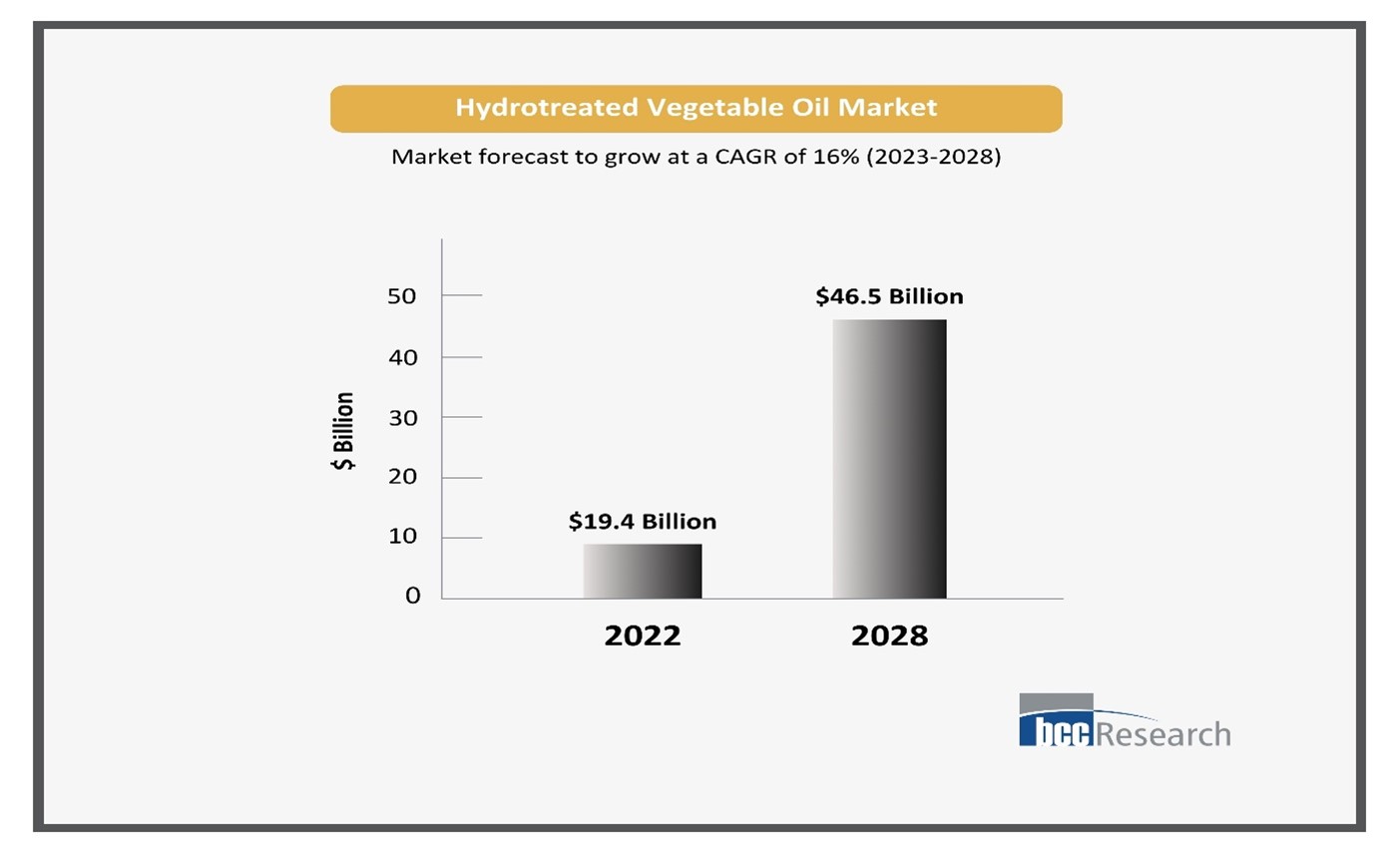
Apr 22, 2024
Hydrotreated Vegetable Oil (HVO) is a diesel-like fuel that can be produced without the need for fossil fuels by converting different vegetable oils and fats that contain triglycerides and fatty acids into renewable waste lipids. The term HVO is used for renewable diesel fuels derived from hydrogenation and hydrocracking of feedstocks such as tall oil, rapeseed oil, waste cooking oil, and animal fats. It is one of the major renewable diesel alternatives worldwide and is blended in fossil diesel and sold as mixtures at fuel filling stations. This blog defines the advantages of HVO, explores major industries using HVO, and also examines future market trends along with the key drivers for the hydrotreated vegetable oil market.
The HVO market is projected to grow from $19.4 billion in 2022 to $46.5 billion in 2028 at a compound annual growth rate (CAGR) of 16.0% during the forecast period.
BCC Research’s latest report on 'Hydrotreated Vegetable Oil Market' predicts that this market will reach $46.5 billion by the end of 2028 with the expected CAGR of 16.0% from 2023 through 2028. Growing environmental concerns, along with increasing demand for biofuels and sustainability goals are the leading key drivers of this HOV market's growth. HVO is a renewable biofuel, and its demand will definitely increase in the future. Overall, the hydrotreated vegetable oil market looks promising for the future.

Consider becoming a member of the BCC Research library and gain access to our full catalog of market research reports in your industry. Not seeing what you are looking for? We offer custom solutions too, including our new product line: Custom Intelligence Services.
Contact us today to find out more.

Heena Singh is a Senior Executive Email Marketer at BCC Research, with a master’s degree in computer applications. She specializes in content creation and data analytics.

Biophotonics: Technologies and Global Markets (PHO024B)

Global Trade: A Strategic Shift The global trade environment is undergoing a dra...

The global demand for cutting-edge materials continues to rise, and at the foref...

We are your trusted research partner, providing actionable insights and custom consulting across life sciences, advanced materials, and technology. Allow BCC Research to nurture your smartest business decisions today, tomorrow, and beyond.
Contact UsBCC Research provides objective, unbiased measurement and assessment of market opportunities with detailed market research reports. Our experienced industry analysts assess growth opportunities, market sizing, technologies, applications, supply chains and companies with the singular goal of helping you make informed business decisions, free of noise and hype.